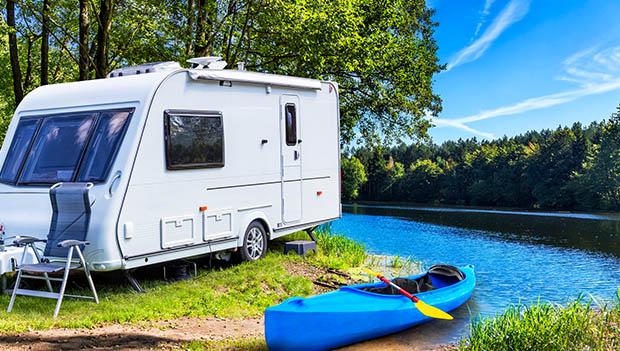
What’s that song? Summer’s here and the time is right for RV camping in the heat. Okay, it doesn’t quite go like that, but it should. Taking the family out on the road in an RV and reveling in our country’s natural beauty has become a time-honored summer tradition for many Americans.
If a summer RV camping trip is on your to-do list, below we have tips on how to make the most of your experience. What’s more, ReserveAmerica has a national network of parks with RV camping sites, ready to host your next big outdoor adventure.
Know the Must-See Spots
After you have decided which area to explore in your RV, it’s time to learn about the must-see spots in the area. Big name national parks get a lot of attention, but often there are smaller state parks or public lands nearby. These locations are worth a stop for scenery that’s just as stunning as their popular national counterparts, and will likely have smaller crowds.
In addition to finding stand-out parks on your trip, research specific points of interest, such as look-outs, waterfalls, or locations with interesting history such as Native American ruins or pioneer trails. You’ll want to drill down your trip details as much as possible since the summer season is the most popular time to RV camp and many places are booked up in advance, including campsites, parking, and permits to parks.
Get Reservations!
You will want to make reservations for all your campsites, and when possible, permits to parks, as far ahead of time as possible. Many campsites book up months before the summer season. That said, some campgrounds do not take reservations, but operate on a first-come first-served basis. You may be able to get there early enough to snag a site.
To search for an RV site, go to ReserveAmerica.com and type in the area where you want to camp in the search bar. You can drill down your search results using the filters. One option is in the drop down menu called Site Type. Simply choose the RV Sites option to see RV sites in your selected area.
Research the Roads
Driving an RV takes a little practice. The newer you are at maneuvering an RV, the more this advice is true for you: research the roads to find out which are narrow, winding, or have features that will make operating an RV challenging. You may want to avoid these roads and opt for longer routes along highways and byways that are easier to navigate.
Research Drive Times
You likely have already looked into the drive times from the major points on your trip, but consider the drive times when doing a day trip from your camp. Know how long it takes to get from a day visit spot to your camp. You’ll want to give yourself enough time to set up for the evening, especially if you are travelling with children.
Stay at State Parks to Avoid the Crowds
Camping spots at RV parks and national parks are often booked out months before the well-traveled summer months. Besides contending with the crowds, these campsites tend to be on the pricier side. Consider staying at smaller parks, especially those run by state park departments. These campsites tend to be more spread out for greater privacy and a little more price conscious.
Below are seven such parks for your next RV camping trip:
1. Cary State Forest Campground, Florida
With over 13,000 acres of woodlands, swamps, and cypress domes, Cary State Forest Campground is a favorite spot to see rare wildlife and plant species, including endangered or threatened animals. There is a campground, a group camp, day-use areas, and multi-use trails for hiking, camping, nature study, birding, wildlife viewing, hunting, horseback riding, and wildflower viewing. The camp is also close to other scenic areas and parks, including Fort Clinch State Park and Okefenokee National Wildlife Refuge.
There are six campsites with electric hookups and a dump station, showers, and flushable toilets.
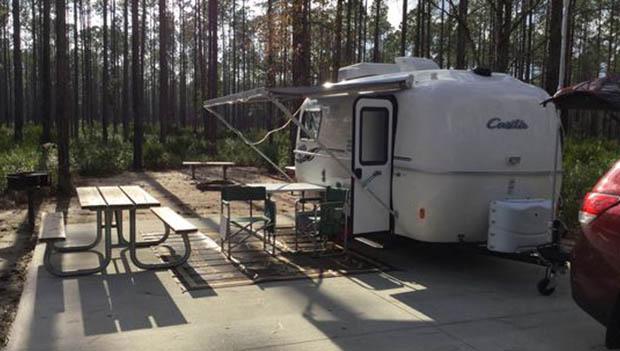
2. Ausable Point Campground, New York
Ausable Point Campground offers campers relaxation along Lake Champlain with a shoreline marked by gentle sand slopes. The campground borders a wildlife management area with great hiking and water access for canoeists and kayakers. The park also welcomes motor boats, rowboats, and windsurfers. What’s more, the lake is stocked with a wide variety of fish, including northern pike, smallmouth bass, largemouth bass, trout, and salmon to name a few.
There are 115 campsites for RVs without hookups. Amenities will keep your crew comfortable, with restrooms with showers, a trailer dump station, a boat launch, a picnic area, and a bathhouse.
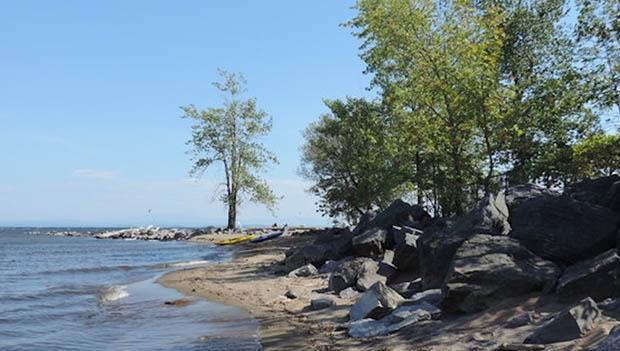
Recommended: Different Types of Camping
3. Hugh White State Park, Mississippi
Nestled on the shores of scenic Grenada Lake, Hugh White State Park offers campers plenty of recreation amenities in a setting of exceptional natural beauty. The lake is best known for its crappie fishing, but is also well-stocked with bass, bream, and catfish. Centrally located between Memphis, TN and Jackson, MS, Hugh White State Park is a great place to relax for people traveling through southern Appalachia and the south. You are likely to get a camping spot at one of the 126 standard campsites (without hookups). If you need some extra room, there are 24 cabins as well.
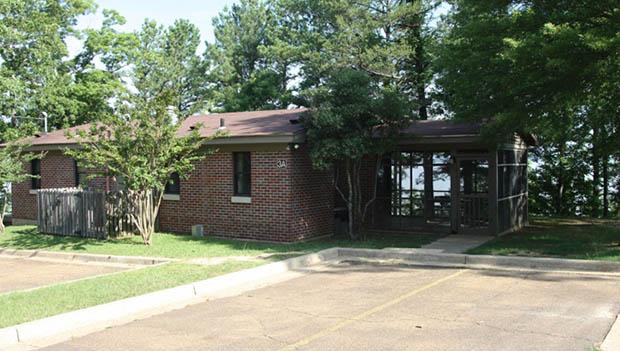
4. Hardy Lake, Indiana
The biggest attraction at this camping spot is, as the name suggests, Hardy Lake. It’s a large lake frequented by local anglers for its great fishing. Boaters and water skiers also love the lake. If you want time off the water, there are hiking trails, a picnic area, and hunting opportunities during the hunting seasons. There are two campgrounds, both open year round, with a total of 156 campsites and 143 sites with electric hookup.
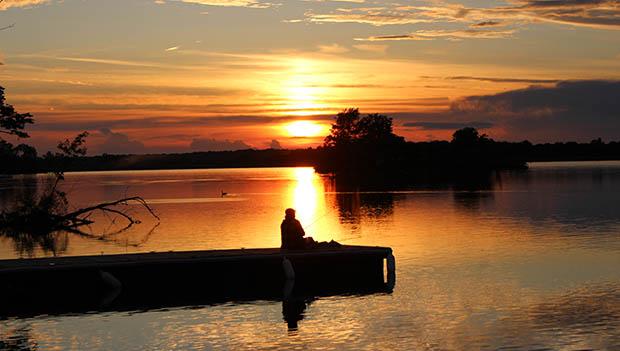
Recommended: 9 Unique Desert Camping Experiences
5. Hammonasset Beach State Park, Connecticut
As Connecticut’s largest public beach park, Hammonasset offers a full array of recreation activities. Swim in the salt water, play on the beach, walk the boardwalk, launch a carry-in boat, go canoeing, or fish from the stone breakwater. Special summertime activities include nature talks, bingo, movies, horseshoes, bocce ball, and volleyball.
There are a whooping 555 grassy campsites – 87 electric hookups and 396 nonelectric – and plenty of amenities including restrooms, showers, a camp store, dump stations, and water.
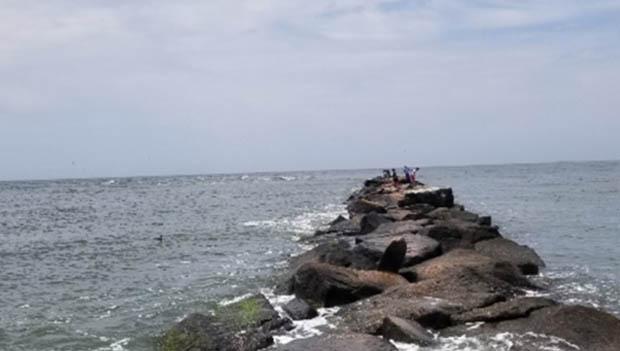
6. Branched Oak SRA, Nebraska
This campground boasts the largest of the Salt Valley Lakes near Lincoln, with over 1,800 acres of water. Boaters love it for the four boat ramps, fish cleaning stations, private marina, and concession area. There are also several miles of trails for hiking, biking, and horse riding. Camping is also allowed in select areas with horses. Campers have their choice of 335 campsites, including 227 with electric hookups, 12 with full hookups, and 85 electric plus sites.
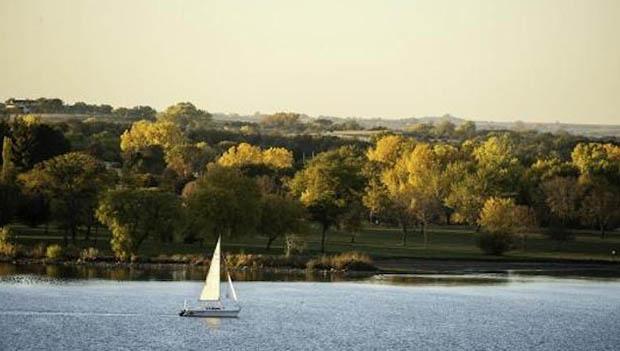
Recommended: 10 Reasons to Travel by RV
7. Emigrant Springs State Heritage Park, Oregon
Situated in an old-growth forest near the soaring peaks of the Blue Mountains, Emigrant Springs State Heritage Area provides unique opportunities to camp in the natural wilderness that was a popular stopover on the Oregon Trail. There are 16 campsites with full hookups, as well as a horse camp and hot showers and flushing toilets.
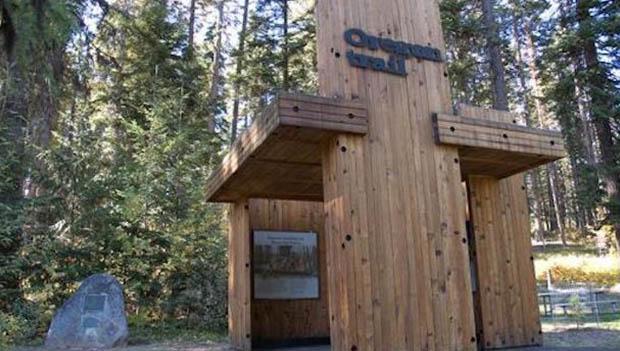
Are you ready for an outdoor adventure? Plan your camping trip!
Check with your Local Government Organization
Many policies have been established to counter and control the coronavirus outbreak. State and local officials have been taking decisive action to stop the spread. The policies vary by state, sometimes to a great degree. When you book a reservation, make sure to review the park and state’s latest rules and regulations prior to your visit.
For COVID-19 updates, please visit our Impacted Park List and Reservation Guide for the latest information.